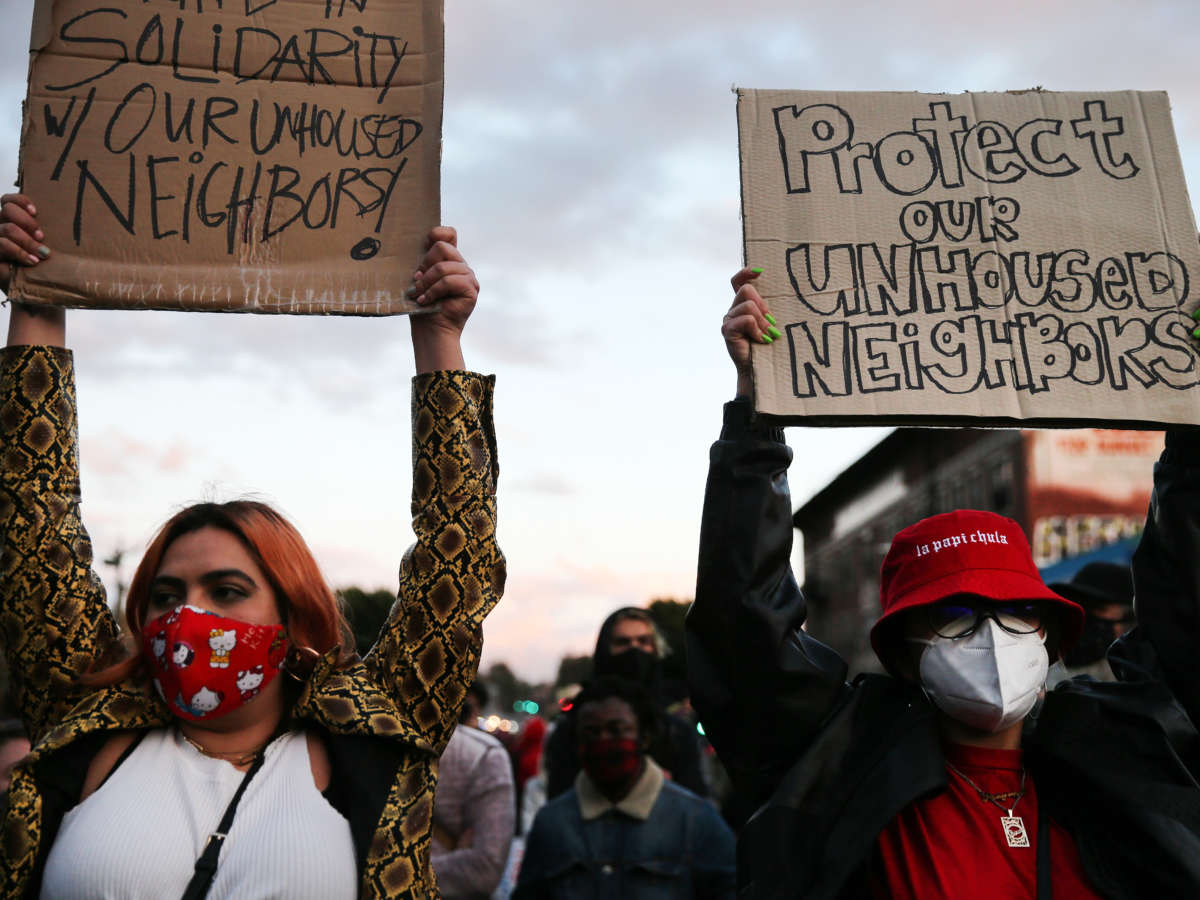Almost 80 years ago, in 1943, Los Angeles introduced the rest of the United States to the phenomenon of smog. At one point that year, the haze had visibility down a frightening three city blocks.
In L.A. these days, “fine inhalable particulate matter” doesn’t pose much of a problem in the city’s plushest environs. But the neighborhoods L.A.’s low-income families call home still suffer from rates of air pollution that dwarf the levels in more comfortable quarters.
What’s going to fix this distinctly unequal state of atmospheric affairs? How about a step toward a more equal state of economic affairs — and L.A. voters might just be about to take that step. On the citywide ballot this November: a landmark new tax on the rich that will kick in every time a local mansion changes hands.
All the proceeds from this new tax on the turnover of properties worth over $5 million will go to creating safe and secure housing opportunities for L.A. families of limited financial means.
No one knows exactly how much the proposed new city ordinance will raise, if passed, but the take from the new tax figures to be substantial. The grassroots coalition behind the initiative, Unite to House LA, is estimating that had its proposed tax measure been in effect over one recent 12-month period, the city would have cleared some $800 million in new revenue.
All that revenue, with the “House LA” initiative in place, would come from adding a new 4 percent city tax on the sale or transfer of properties valued between $5 million and $10 million and a new 5.5 percent levy on the transfer of properties that go for over $10 million. The current city tax on these luxury transfers: just 0.45 percent.
Over the last two years, data from the real estate site Redfin show, more than 1,000 single-family homes in greater Los Angeles sold for over $5 million, some for extravagantly over that marker.
Some trace the L.A. area’s super-boom in luxury housing back to 2017 when a new home in Beverly Hills went on the market for a then-spectacular $100 million. That manse came with a champaign vault prefilled with 170 bottles and a full-time house manager with a salary prepaid for two years. Two years later, the developer Nile Niami asked an astonishing $500 million for a 100,000-square-foot Bel-Air hilltop estate complete with its own nightclub and IMAX theater.
Overall, reports the real estate brokerage Compass Inc., Los Angeles last year saw more luxury properties selling for over $10 million than any other locale in the United States. Topping the 2021 wretched-excess list: the $133 million the crypto king Brian Armstrong, the CEO of Coinbase, paid for a “minimalist” mansion built in 2009.
Levying the United to House LA initiative tax on properties like these, advocates point out, would enable Los Angeles to keep 475,000 renters annually from going homeless and create new housing units for 69,000 people over the next decade.
And these gains would come from a tax that only impacts about 3 percent of real estate transactions within the Los Angeles city limits. This past May, the typical Los Angeles home sold went for $910,000. Based on that figure, the selling price on the city’s typical home would essentially have to quintuple before triggering the United to House LA mansion tax.
Without that trigger in place, affordable housing advocates believe, Los Angeles faces a “humanitarian crisis.” The city’s Economic Roundtable, for its part, is projecting an 86-percent in homelessness over the next four years.
“We haven’t seen,” notes one local activist behind United to House LA, the Alliance for Community Transit’s Laura Raymond, “our local government take the immediate and bold action that is needed.”
That local government will be coming under the direction of a new mayor after Election Day this November, and the two candidates vying for the city’s top spot somewhat symbolize the political dynamics that have left Los Angeles so deeply divided.
As of earlier this month, mayoral candidate Rick Caruso, a billionaire real estate developer, had spent almost $34 million to make the November runoff, over 11 times the outlays of his mayoral rival, U.S. representative Karen Bass, a former South L.A. community organizer.
Caruso’s claim to fame: He developed Los Angeles’ “most iconic luxury shopping centers.” On the campaign trail, Caruso has been pledging to “clean up” homelessness — and skipping serious public forums about the city’s housing crisis.
Those forums are showcasing the broad coalition behind the United to House LA initiative, an effort that’s enlisted groups that range from the Los Angeles Federation of Labor and individual unions to housing organizations and the ACLU of Southern California. In all, some 150 local groups have so far joined in on the campaign.
The opposition to the House LA initiative is building around funding from the city’s megadevelopers and various other property interests. These groups, says Alison Vu of United to House LA, “don’t want millionaires and billionaires to pay their fair share.”
Meanwhile, nationwide, the distribution of housing wealth remains anything but fair. Between 2010 and 2020, the National Association of Realtors reports, housing wealth overall increased $8.2 trillion to a $24.1 trillion. A whopping 71 percent of that jump went to high-income households that make over triple their area’s most typical take-home. Low-income households realized just 4 percent.


